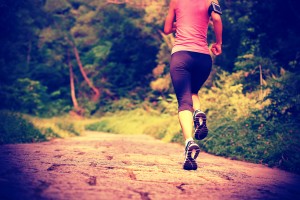[vc_row][vc_column width=”1/1″][vc_column_text][printfriendly]
By Ljudmila Petrovic
When I first went into recovery, I knew that it was going to be a learning curve, but one of the hardest lessons I had to learn was to do with exercise. There had been so much focus on my weight and eating habits in the early stages of my recovery that exercise was anything but in the forefront. It wasn’t until about a year into my recovery that I was faced with a difficult truth: exercise isn’t always healthy.
In a clinical sense, I was all recovered. I was back at a healthy weight, I had reincorporated most foods into my daily diet, I wasn’t purging after meals, and I didn’t have visible distress about eating meals. I was exercising a lot, but exercise is healthy, right? The reality is, however, that my exercising at the time was anything but healthy. My thought processes around exercise were not much different from those I had had around food.
 One day, I found myself locked in the bathroom, doing sit-ups on the bathroom floor and I realized that something about this felt all too familiar. How is this any different from purging? I asked myself. Is this really about health anymore? It was then that I began to think about why I was exercising and how it was affecting my life. Exercise was impeding on my social life, just as starving myself had. I was exercising even when my body was saying no, I was taking extreme measures to exercise, and the food allowances I made myself were directly reliant on how much I had exercised that day. I was so used to hearing the health industry’s mantra that exercise is unequivocally and completely healthy, that we can always exercise more, and that going to the gym is always good. I hadn’t stopped to look at how this was playing out in my own recovery and my own overall wellness. It wasn’t until later when I learned about orthorexia nervosa (which, although not yet considered a clinical eating disorder by the DSM, is an unhealthy fixation on “eating clean”) that I started rethinking behaviours I had considered “healthy” and a deviation from my eating disorder—including exercise.
One day, I found myself locked in the bathroom, doing sit-ups on the bathroom floor and I realized that something about this felt all too familiar. How is this any different from purging? I asked myself. Is this really about health anymore? It was then that I began to think about why I was exercising and how it was affecting my life. Exercise was impeding on my social life, just as starving myself had. I was exercising even when my body was saying no, I was taking extreme measures to exercise, and the food allowances I made myself were directly reliant on how much I had exercised that day. I was so used to hearing the health industry’s mantra that exercise is unequivocally and completely healthy, that we can always exercise more, and that going to the gym is always good. I hadn’t stopped to look at how this was playing out in my own recovery and my own overall wellness. It wasn’t until later when I learned about orthorexia nervosa (which, although not yet considered a clinical eating disorder by the DSM, is an unhealthy fixation on “eating clean”) that I started rethinking behaviours I had considered “healthy” and a deviation from my eating disorder—including exercise.
If you are in recovery, no matter how far along that may be, take a moment to look at your exercising habits.
Take a moment to ask yourself why you exercise and how you measure a workout. Is it measured by numbers—for example, by how many calories you burned—or by how it made you feel and how it served your body? Do you exercise in order for eating to feel okay, or do you exercise for yourself—for stress relief, for a clearer mind, for feeling good? How flexible are you in your workout schedule? Does missing a workout throw you into a state of anxiety? Is exercise just one aspect of your wellness plan or is it a preoccupation and a compulsion?
The thing with exercise is that it can be taken too far, just like anything. It can be an essential part of a healthy lifestyle and of a successful recovery, but it can also become an obsession and an unhealthy habit when taken too far. This doesn’t mean that exercise is necessarily “bad” or off limits, even in early recovery; it just means that we need to apply mindfulness to how and why we exercise. Maybe the gym, with machines that measure the number of calories burnt, is a triggering place, but a walk in the park or a bike ride with a friend is an enjoyable experience. Maybe you feel particularly fatigued on a certain day and need to take the extra time to catch up on sleep instead of waking up early to run before work. Listening to your body and being mindful of what it needs—whether that is exercise or rest—is an essential part of recovery and maintaining a truly healthy lifestyle.
[/vc_column_text][/vc_column][/vc_row][vc_row][vc_column][vc_column_text]
[/vc_column_text][/vc_column][/vc_row][vc_row][vc_column width=”1/1″][vc_column_text]
[dt_divider style=”thin” /]
Ljudmila graduated from SFU, where she studied psychology and gender studies. She lives in Vancouver, BC and is doing her MA in counselling psychology, with the goal of doing women-centred therapy.
[/vc_column_text][/vc_column][/vc_row]